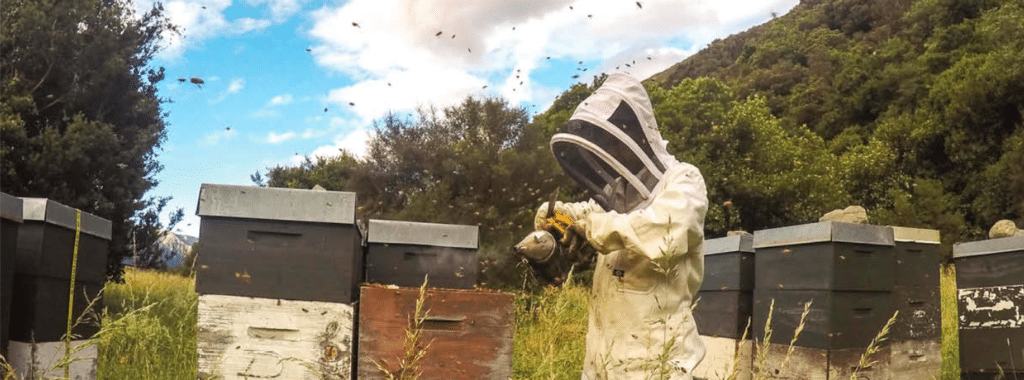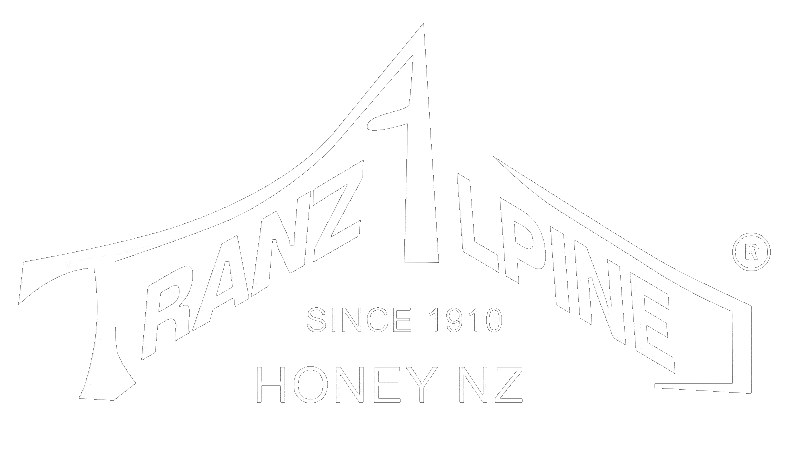
The TranzAlpine Organic Honey Journey
TranzAlpine Honey is an award-winning family business, and we have been keeping bees since 1910. We celebrated 110 years of beekeeping in 2020, have been certified organic since 1993, export to 26 countries on 5 continents and single-handedly supply 68% of all organic honey to the EU.
So it is safe to say that we know a thing or two about honey, our bees, and the environment they live in.
We knew early on that the commitment to nurturing the environment for our bees would be a lifelong dedication.
As New Zealand’s largest organic honey producer and exporter, we take our responsibility as seriously as we did when we started beekeeping over 100 years ago.
While technology may have enabled us to process products faster and more efficiently, our traditional simple beekeeping practices are still very much at the core of everything we do.
Out of 6735 registered beekeeping enterprises in New Zealand, there are only 9 organically certified honey producers, of which TranzAlpine is one.
From Hive to Home
Our beehives are tucked far away from city pollution and agricultural spraying in the remote wilderness of the South Island, where it is abundant with native flora.
The location selection of our hives – a minimum of 5km away from urban suburbs or farming activities – ensures that we meet the stringent organic certification requirements. This also means that you are assured of the purest organic honey in every jar.
Each location is carefully selected and considered, taking into account the environmental impact on our hives and what native flora will be available for our bees to harvest from.
Harvesting Honey
Our honey storeys or frames are carefully removed and collected from the hives. The frames are transported to our production facility and placed in warm storage for 12 hours before being extracted.
During extraction, we do not use any heat or chemicals. Unlike conventional operations that heat honey above 30 degrees Celcius, we keep the storage and production temperature at the natural temperature of the beehives.
This organic process helps to preserve all the exceptional antioxidant properties and natural enzymes in the honey, which normally breaks down under excessive heat.
We extract the honey by spinning it off of the frames. The extracted honey then goes into a creaming tank where it is spun for 12 hours. This process called creaming gives honey a softer, buttery texture while preserving all benefits.
The creamed honey is then transferred into food-grade drums before being packed into 100% Recycled PET, BPA-free jars or glass jars depending on customer requirements and shipped.
Organic Honey Quality Control and Traceability
As part of our quality control and traceability system, we test each batch of honey independently and record this as part of our production process.
Honey is tested for 200+ micro residues, including an extensive range of harmful agricultural chemicals. This vigorous testing process is only a part of organic requirements and is unique to our product.
Each batch of exported honey comes with an MPI and organic transaction certificate to confirm the quality and traceability.
We go to great lengths to ensure that each batch of honey has only the good stuff.
Try our Honey
You can buy any of our organic honey products online from our store we ship worldwide.
Buy now and pay later with Afterpay in NZ, Australia and Canada and with Clearpay in the EU/UK. Just select Afterpay at checkout.
If you are in the US, you can find our honey products in over 90 stores and counting nationwide.
You can also save up to 30% when you purchase an organic honey subscription – never run out of your favourite honey again!
TranzAlpine Honey from the New Zealand Alps to the world.
Read More
What grade of Manuka honey is best?
Protect and Defend your Health with Organic Honey
Give Your Body a Boost with Organic White Clover Honey Infused with Ginger
Posted in Organic
Share:

